5 Benefits of Adding Retinol to Your Skincare Routine

Knowing where to start with a skincare regimen can be overwhelming. Even if you recognize the basics—like moisturizers and cleansers—there are far more steps to consider nowadays, including everything from serums to peptides. One particularly popular buzzword is “retinol,” and while you might be tempted to wave it off as another unnecessary investment, dermatologists and skincare experts say that there are actually multiple retinol benefits.
RELATED: 5 Reasons You Should Add Petroleum Jelly to Your Skincare Routine After 50.
What Does Retinol Do?
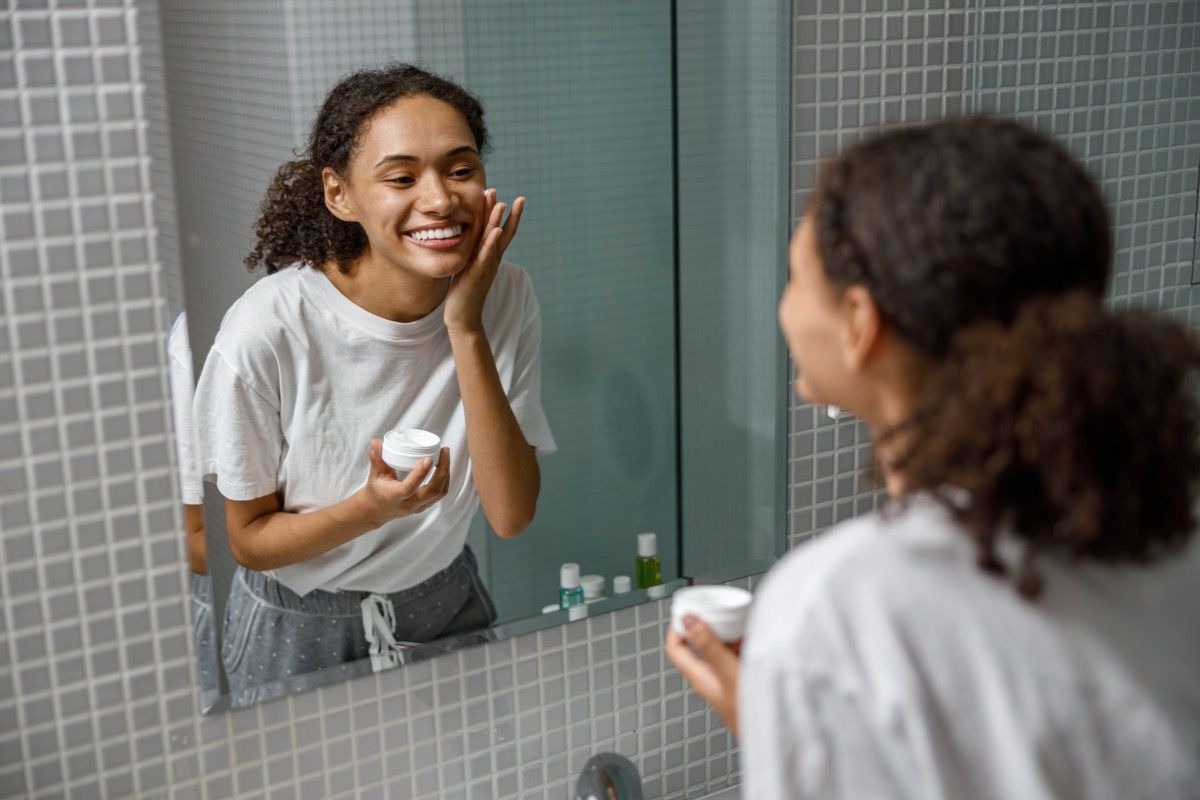
According to Dendy Engelman, MD, FACMS, FAAD, board-certified cosmetic dermatologist and Mohs surgeon at Shafer Clinic, retinol “is a powerful anti-aging ingredient that increases cell production, leading to smoother, firmer skin.”
Meredith Price, MD, a board-certified dermatologist at Grosse Pointe Dermatology, notes that retinol can also decrease oil gland function and reduce pigment production in the skin when exposed to sunlight.
Retinol vs. Retinoid: What’s the Difference?
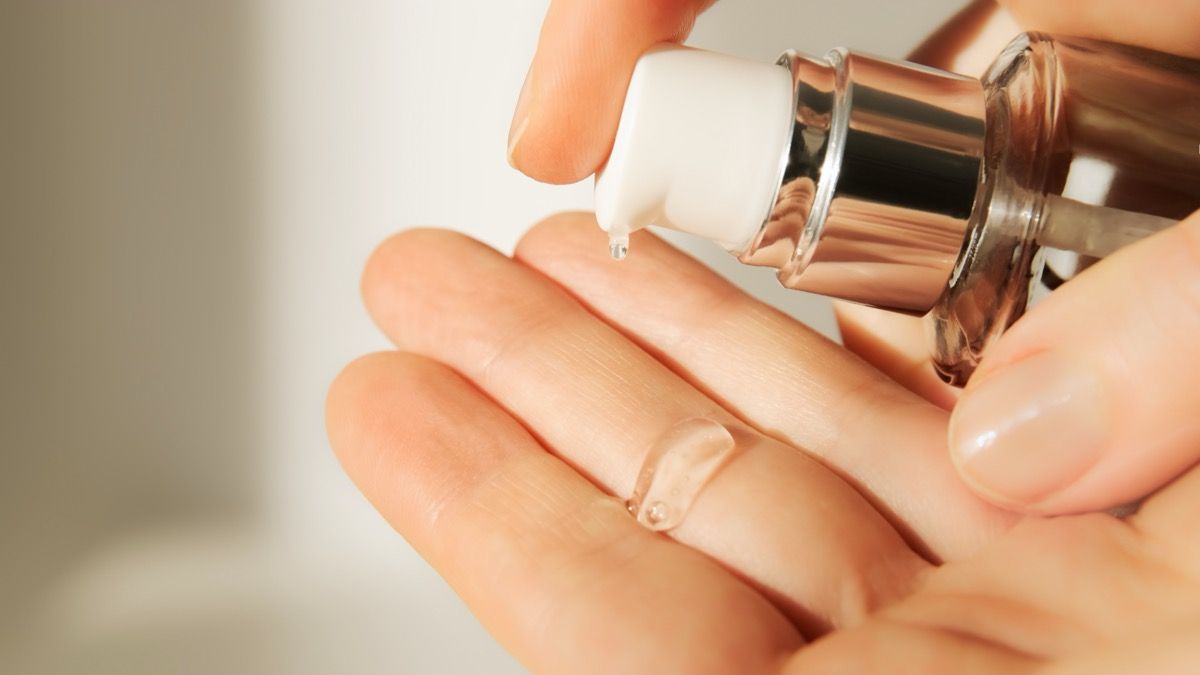
As Natasha Dauncey, founder of skincare brand Apothaka, explains, retinoids are “a family of molecules” that are all derivatives of vitamin A. Retinol is a type of retinoid.
“Retinol is one of these derivatives and probably the most well-known over-the-counter retinoid, though others, including retinaldehyde, are becoming increasingly popular within the cosmetic market,” she says.
Tretinoin, otherwise known as retinoic acid, is the most well-known prescription version of a retinoid, Dauncey says. It’s typically prescribed for skin aging and acne.
“[Tretinoin] is also considerably stronger than over-the-counter derivatives like retinol, retinal, and HPR (hydroxypinacolone retinoate),” she notes.
Wondering how to distinguish between all of these different topical retinoids? It’s primarily a matter of strength.
According to Price, “They differ by how many steps of conversion are required in the skin before they bind to the retinoid acid receptor and exert their effects. In this way, some are more ‘potent’ than others.”
But what exactly can retinol do for you? Read on to learn the five top benefits of adding it to your skincare regimen.
RELATED: Dermatologist Reveals Her 7 Favorite Dollar Tree Skincare Products for Anti-Aging.
5 Retinol Benefits for Your Skin

1. Improves skin texture
Different retinoids help with skin cell turnover by promoting the shedding of dead skin cells.
“Facilitating the progression of new/fresh skin cells to the surface (a process which naturally slows down with age) results in smoother, less textured skin,” Dauncey says.
Even better, with smoother skin, light will reflect better off of the surface and contribute to that “glow” we’re all after, Price adds.
2. Smooths fine lines
Topical retinoids, including retinol, can help smooth out your fine lines and wrinkles, Price shares. They do this by stimulating your glycosaminoglycans and collagen production, Dauncey explains.
By promoting the production of these “two key components of the dermis,” your skin will look stronger and plumper, she adds.
3. Helps treat acne
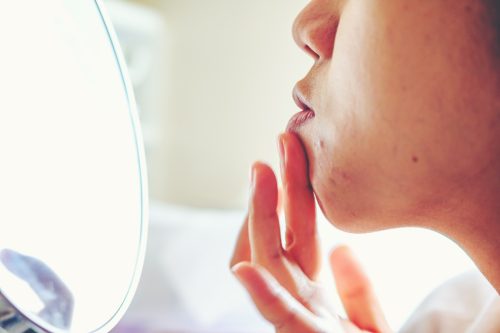
If you struggle with acne, retinol can be of assistance there as well, Dauncey tells Best Life.
“Retinoids are comedolytic—they prevent the formation of comedones and are therefore helpful in the management of acne,” she says. (Comedones are the acne lesions that appear on the skin in the form of blackheads or whiteheads.)
4. Helps treat uneven skin tone
According to Price, retinoids like retinol help even out your skin tone as well, promoting “more equal dispersion of pigment in the skin.”
5. Introduces antioxidants
Lastly, retinol offers antioxidant benefits. It is a form of vitamin A, which has antioxidants that can “defend against free radical damage, which is responsible for premature aging,” Dauncey notes.
RELATED: Dermatologists Share the Best Drugstore Skincare Products: “Anything More Is Not Necessary.”
How to Use Retinol
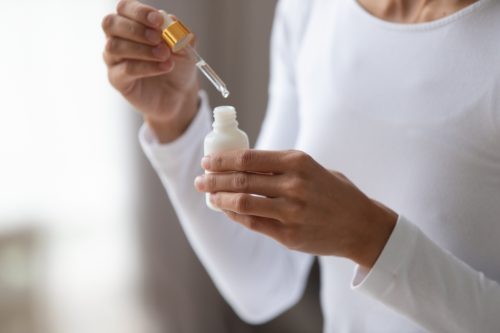
Start slowly.
Experts say that when using any retinoid, including retinol, you need to start slow.
“I always recommend starting two nights per week and slowly working your way up to nightly use,” Price suggests. “It also helps to apply after cleansing and putting on moisturizer and sticking to a pea-sized amount for the whole face.”
Pick the right form of retinol for you.
There are different forms of retinol, including creams, serums, and gels—so you want to choose the right kind for your skin type, effectively reducing any potential irritation.
“The vehicle (gel/serum/cream) depends on your skin type,” Price explains. “If you tend toward oily, a gel or serum might be great. If you tend toward dry, a cream would work well.”
Dauncey also says you can look into encapsulated forms of retinol or retinal.
“This can reduce the chance of irritation and improve the stability of the retinoid, resulting in sustained efficacy of the product once opened (as retinoids are inherently unstable in skincare products),” she says.
RELATED: 10 French Skincare Secrets That Will Make You Look Years Younger, Experts Say.
Consider a prescription.
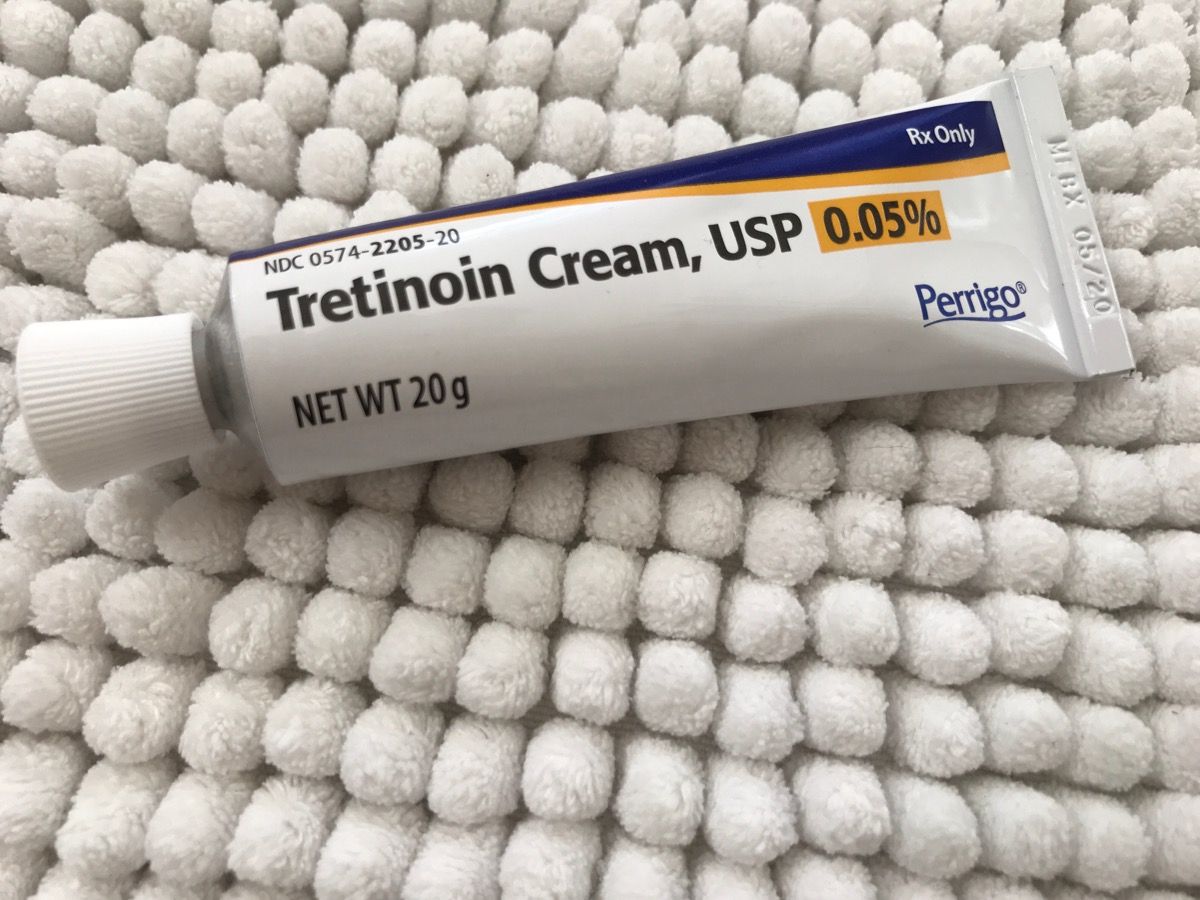
You may want to consider a prescription retinoid product. Retinol is primarily available over-the-counter, but if you need a stronger option, you’ll have to go to a dermatologist.
“For the treatment of acne (as opposed to anti-aging), prescription options (tretinoin, adapalene, tazarotene) are more likely to be effective, though retinal offers an anti-bacterial effect, so it can be helpful in mild acne management,” Dauncey shares.
Possible Side Effects of Using Retinol
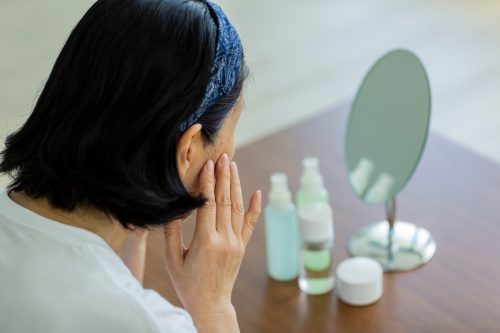
Dryness
Nicole Ho, head of research and development at Genie Supply, cautions that because retinol is a “powerful active,” it can make your skin very dry.
Irritation
General skin irritation is another possible side effect thanks to the exfoliating properties of retinol, Dendy adds. This may be particularly troublesome if you have sensitive skin.
RELATED: Is Micellar Water Good for Your Skin? Here’s What Beauty Experts Say.
Skin peeling
Dauncey notes that you might see some skin peeling when you first start using retinoids and adjusting to use.
“It’s possible to reduce or even avoid this by a gradual build-up of use, buffering the retinoid with a moisturizer first, and limiting/stopping use of other active ingredients, at least at the start,” she advises.
Purging
Another side effect some people experience is purging, Ho says. According to the Cleveland Clinic, “purging” is a period of increased breakouts.
What Skincare Products Should I Avoid When Using Retinol?
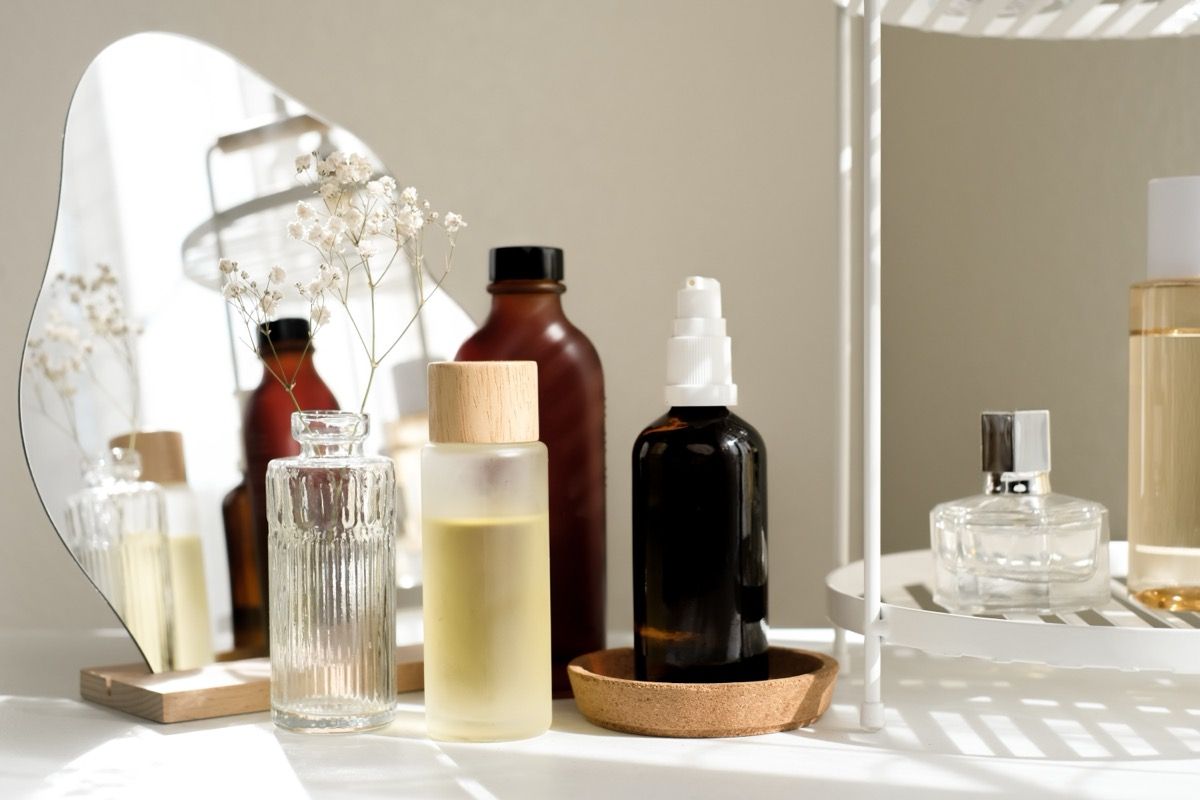
According to Price, you’ll definitely want to avoid using multiple retinoid products at one time. Keep an eye out for products labeled as “night creams,” which often have a retinoid in them, she warns.
In addition, don’t combine retinoids with acids like salicylic acid or glycolic acid. Dauncey suggests avoiding acid exfoliators at the start and considering skipping vitamin C (ascorbic acid).
“Using these increases the likelihood of skin barrier disruption and resulting irritation,” she explains. “They may gradually be reintroduced once fully adjusted to the retinoid. You may even find you don’t need to use them as frequently because the retinoid is doing more of the ‘heavy lifting’ on the skin.”
FAQ
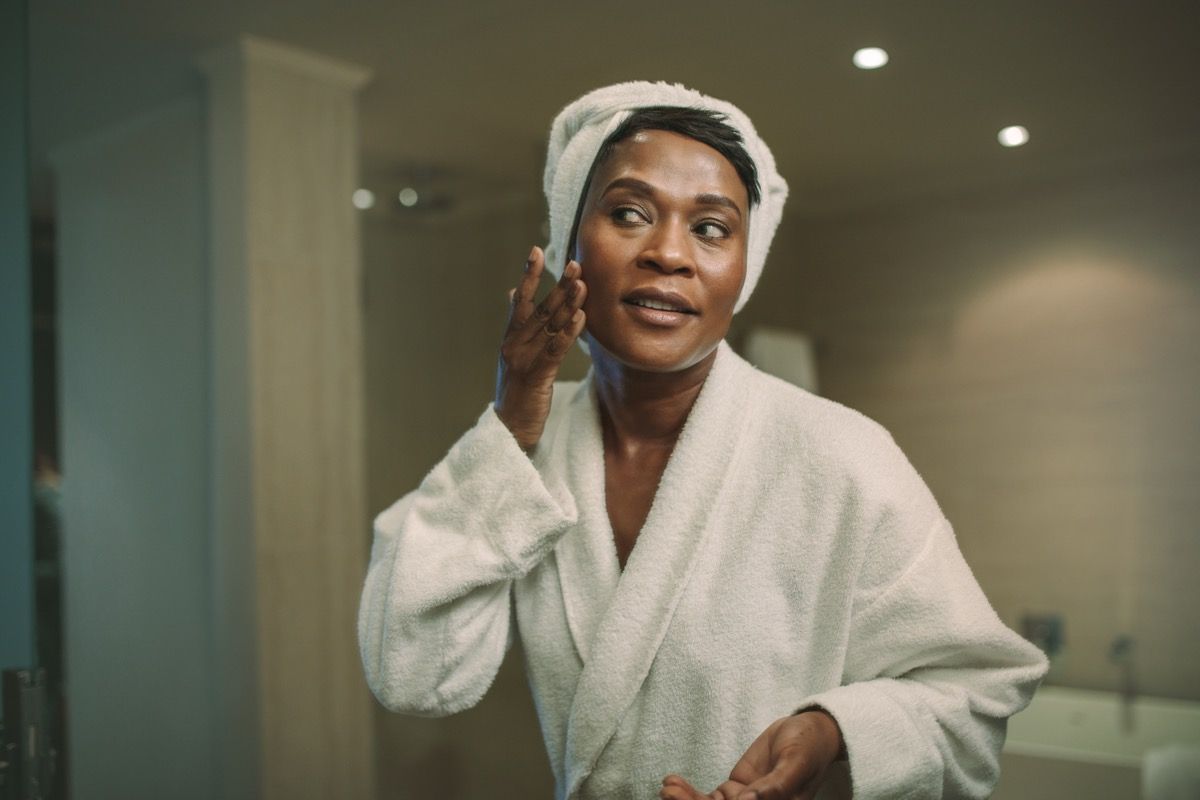
Is It OK to Use Retinoids Every Day?
Once you’ve built up a tolerance to your retinol, it’s safe to use daily.
At the same time, Dauncey says you might prefer to use a retinoid less frequently.
“Some people find they can use retinoids every day, but it’s down to individual tolerance,” she notes. “I’ve personally found five to six times a week sufficient initially (once acclimated), and having used retinoids for a few years, I find that now even three times a week is enough as a ‘maintenance’ treatment.”
Dauncey continues, “It’s very important that users are led by how their own skin is responding because not everyone can tolerate a retinoid well—especially if they already have skin barrier issues and/or are already using a lot of actives in their routines. They may also need to try out a few different options to find a formulation that works best for their skin.”
Speaking to this, Price recommends looking into a gentler option if you’re not able to comfortably apply a retinoid product at least twice a week.
Does Retinol Remove Dark Spots?
Experts also say that retinol can help reduce the appearance of dark spots on the skin.
“Topical retinoids can help to lighten dark spots through the cell turnover that they encourage and through the effects it has on pigment dispersion to the skin,” Price says.
However, more “stubborn pigmentation” might require professional cosmetic or dermatological treatments, Dauncey cautions.
RELATED: 8 Skincare Ingredients That Help Hide Your Wrinkles, Experts Say.
Can I Go in the Sun When Using Retinol?

Experts recommend using retinol at night, as the products can increase your skin’s sensitivity to sun exposure. But that doesn’t mean you have to hide inside while using the treatment.
“You can live your life while using a topical retinoid!” Price says. “I always advise regular sun protective measures (SPF 50, seeking the shade, wearing a hat) while using a topical retinoid, and of course, I will always recommend avoiding tanning/sunbathing.”
If you’re not able to avoid sunlight—especially when the UV index is at its highest—or wear sunscreen, Dauncey warns that it may defeat the purpose of using a retinoid.
Conclusion
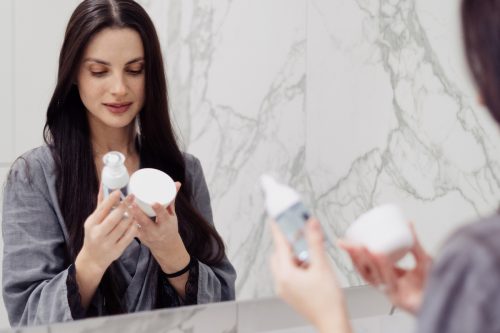
Even if you know that you want to introduce retinol to your routine, it can be tricky to know which products will work best for you. That’s where a dermatologist comes in. A medical professional can recommend the best options—or prescribe a stronger retinoid—based on your skin type and specific needs.
Best Life is your go-to source for skincare advice and doctor-led recommendations. Check back for more content to keep your skin looking young, fresh, and wrinkle-free.